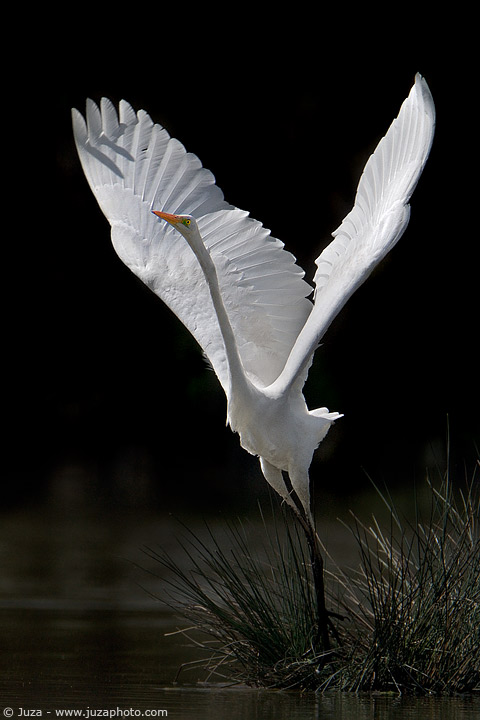
Sing Ruby Siu
English 48B
February 5, 2009
Journal #9 Sarah Orne Jewett
QUOTE:
“No, she must keep silence! What is it that suddenly forbids her and makes her dumb? Has she been nine years growing and now, when the great world for the first time puts out a hand to her, must she thrust it aside for a bird’s sake?” (528).
SUMMARY:
In the story, “A White Heron,” a stranger appeared in Sylvia’s grandmother’s farm and he seemed to be a hunter and collector of birds. The man narrated his passion for birds, especially for white herons, and he was even willing to give away some money to get this bird. Sylvia was first impressed by how dedicated, modernized and knowledgeable this young man was, so she in her mind accepted this trade and tried to help catch the white herons. However, in the very last section of the story, she apparently at that time had a conflicting mind about whether to trade a white heron for money or to preserve the lives of the birds. This quote summarizes how Sylvia insisted on her unknown motivation to reject the stranger’s quest.
I think this quote is one of the richest, densest and most delicious quotes from the story. The objects in this quote are referring to actual subjects, but a certain amount of vagueness grants us imaginative space and critical thinking that we are able to relate to some symbolic ideas behind. It reveals multi-cores of the story if we interpret it in several critical ways, such as from eco, feminist, social-economical and sexist perspectives. On the most apparent level, which is the perspective of eco-criticism, Sylvia wanted to preserve the nature and the wilderness because “the power of nature proved to be much greater for her” (Wikipedia). This means that the money or the “great world” offered by the man was no longer important to her compared to her unbreakable dedication and promise for the nature. In her little heart, her innocence and love for nature could not afford a fatal betrayal for the sake of money, and therefore she chose to stand by the birds’ side.
The feminist approach shown by this quote is the part I believe to be the most intriguing and interesting symbolism. Around the turn of the twentieth century, women were often suppressed and were not allowed to deliver opinions publicly. Many of them, like the characters in “The Yellow Wall-paper” by Charlotte Perkins Gilman were imprisoned in cells and treated as psychological abnormal beings. Being held the ability to talk and move freely, Sylvia and many of the females in this story led a independent and self-sustaining image. For example, Sylvia’s grandmother operated the farm mostly by herself; little Sylvia was useful and able to help graze the cow; even the cow Mistress Moolly had great economical contribution to the farm when she gave milk. The absence of male figures and the success (not measured by richness) demonstrated the abilities of girls and women.
In this very quote, Sylvia “must keep silence” showed an autonomous and subjective decision of keeping silence, which contrasted greatly with the women who were forced to keep silent. Although her thoughts urge us to think “what is it that suddenly forbids her and makes her dumb,” she gave no answer, or the only possible answer that forbids her would be her willingness to preserve the nature. In other words, in the feminist approach, Jewett sarcastically used the word “forbid” to refer to how the suppressed women were forbidden to speak, and to imply she was not one of them. The term “great world” is also used to describe the economical opportunities given by male figures, such as marriages. It turns out the “great world” wasn’t that “great” for Sylvia, whose heart endorsed the great nature the most. Jewett implies that despite the opportunities offered by men, females could also choose to keep the original purity, ability and perseverance of themselves, which is the white heron.




20 points. "In this very quote, Sylvia “must keep silence” showed an autonomous and subjective decision of keeping silence, which contrasted greatly with the women who were forced to keep silent." Excellent point!
ReplyDelete